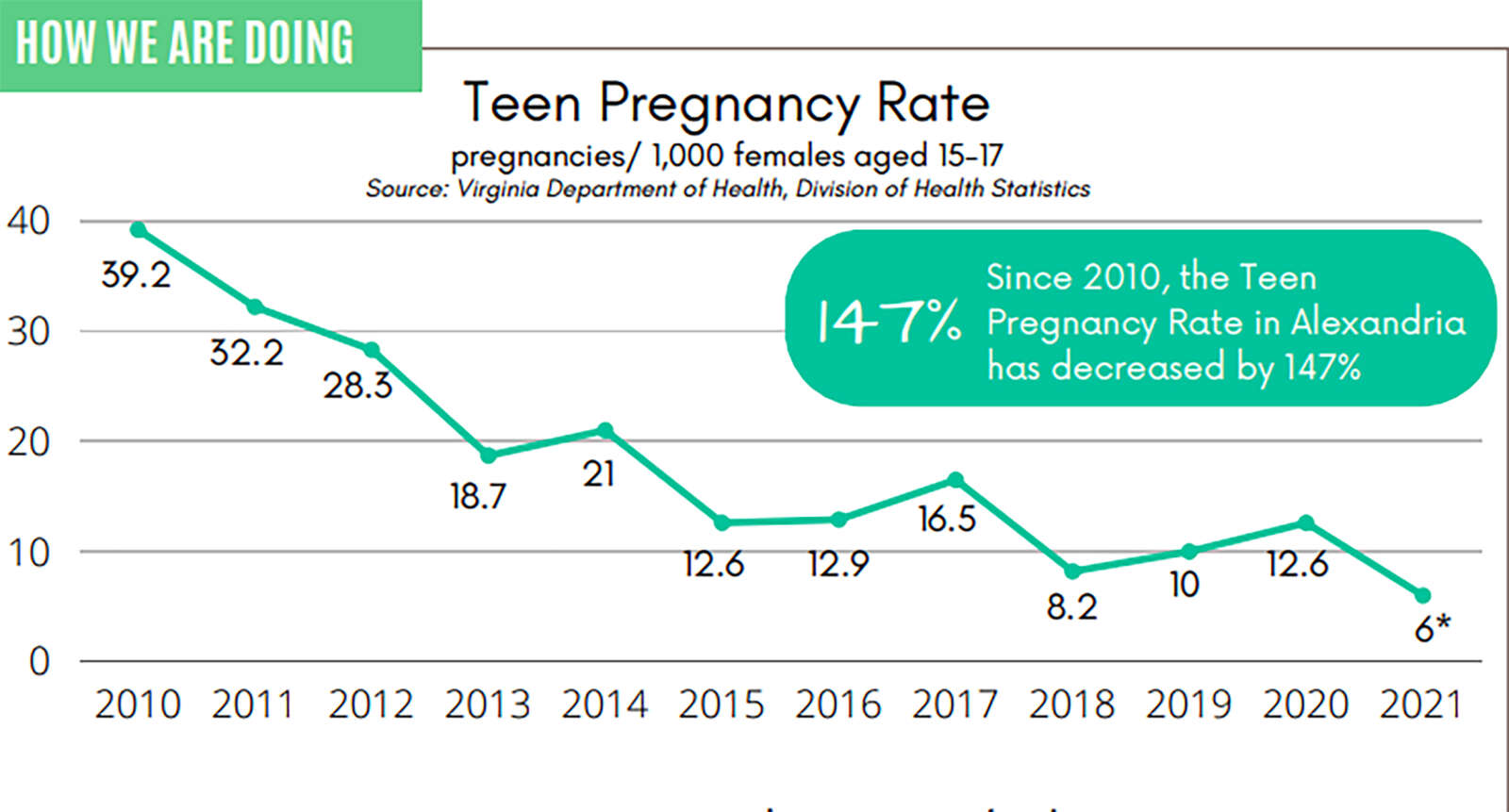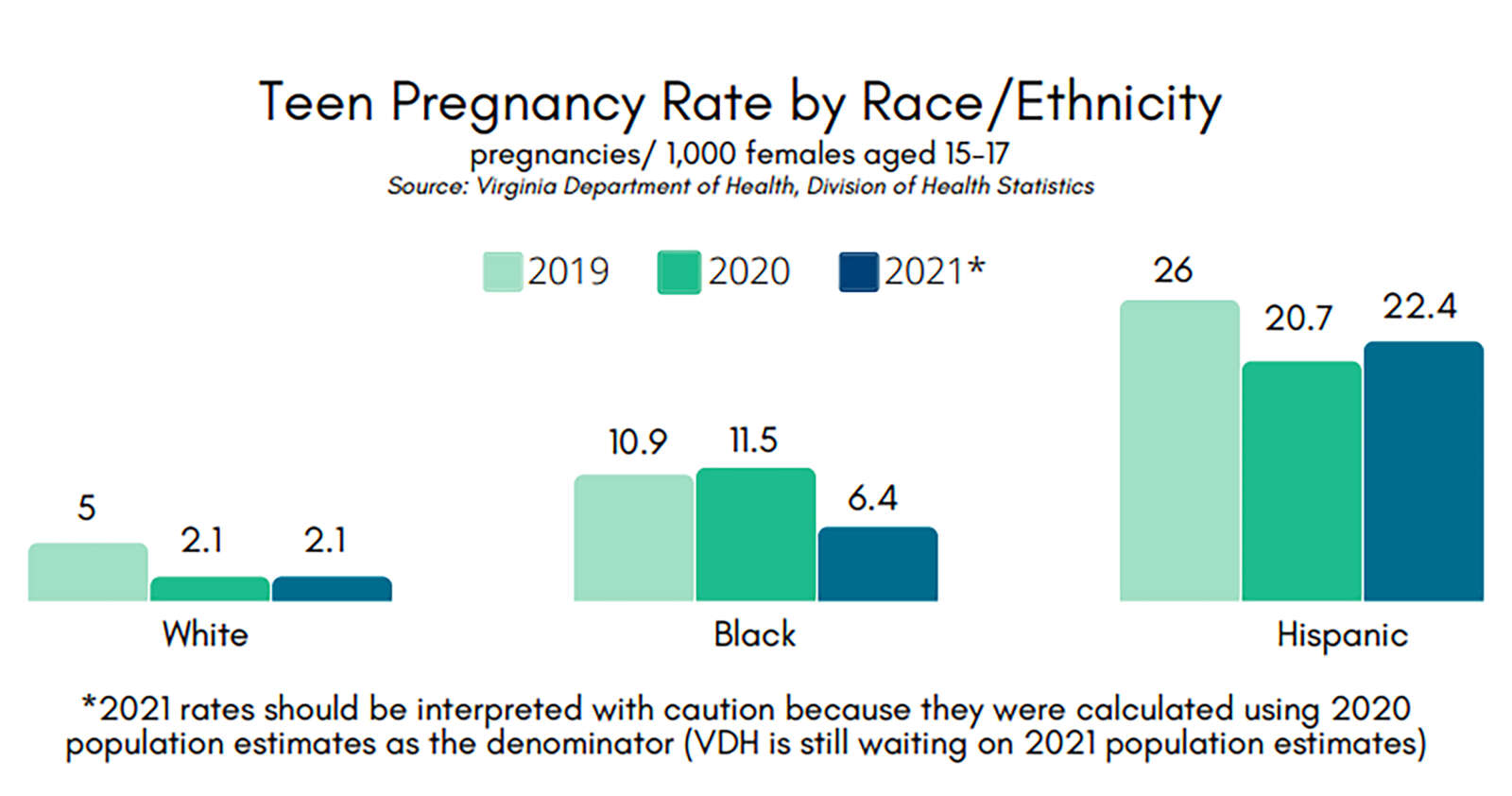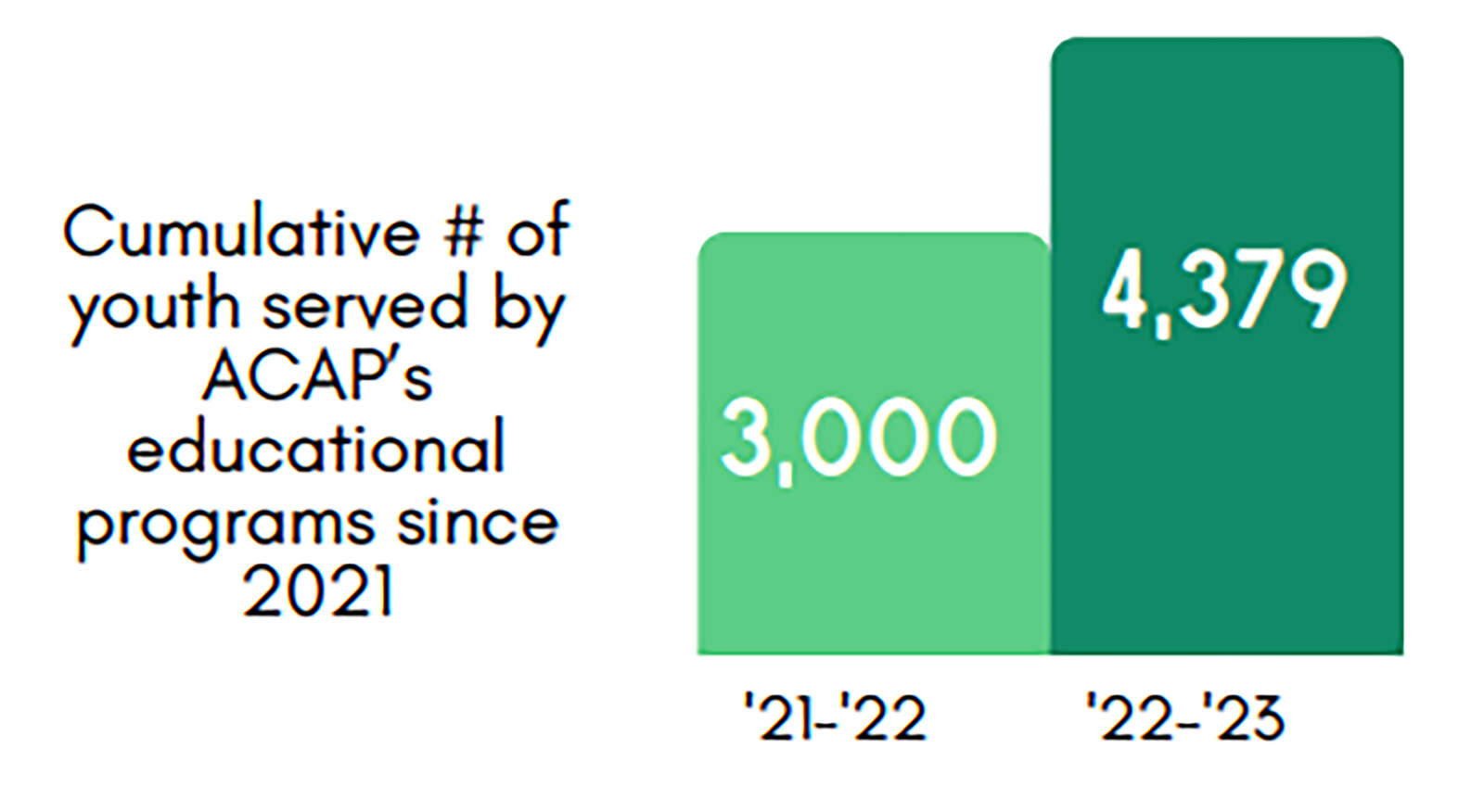
(Updated 3 p.m.) Alexandria’s teen pregnancy rate is falling, although Hispanic girls are disproportionately high, according to new data presented by the city.
The numbers are on the rise for Hispanic girls, with 22.4 pregnancies for every 1,000 female ages 15 to 17 reported in 2021, according to the Alexandria Campaign on Adolescent Pregnancy (ACAP), part of the Department of Community & Human Services. That’s an 8% increase from the previous year, but still below the 26 pregnancies per 1,000 females reported in 2020.
In its 2021 – 2023 Report Card on Sex Ed for All, ACAP says its programs are working and the campaign is working on installing condom dispensers at “various community sites where disproportionately impacted groups reside, work and attend school.” ACAP is also developing a plan for condom distribution, as well as the launch of the Wrap Up Alexandria condom distribution by 2025.

ACAP says it has fully implemented the El Camino sexual health program with Black and Latino youth.
“Sex education can occur at all grade levels with information that is age- and culturally appropriate,” ACAP reported.
Citywide, the teen pregnancy rate fell substantially between 2010 and 2021, according to ACAP. The program is a collaboration between Alexandria City Public Schools, the city’s Department of Community and Human Service, the Alexandria Health Department and a number of community partners.
In the meantime, ACPS is ignoring the Virginia Department of Education’s recommended restrictions against transgender students.
Kids start learning about sex at an early age in Alexandria.
According to ACAP:
In elementary school, sex ed covers foundational building blocks around things like consent and boundary setting with friends, understanding our bodies, and the beautiful diversity in the ways people form and have families.
In middle school, sex ed addresses relevant issues such as puberty, healthy peer relationships and anti-bullying, and media literacy skills to support kids in developing a healthy body image.
In high school, sex ed covers everything from birth control and safer sex, to sexual decision making and communication skills, to understanding how society and culture shape our ideas about sex, gender, and race, and how we can work towards more equitable communities.


